Published Mar 31, 2023
Tuvok was Voyager's Secret Weapon
As the unofficial ship's counselor, the Vulcan proved essential to the crew's survival.
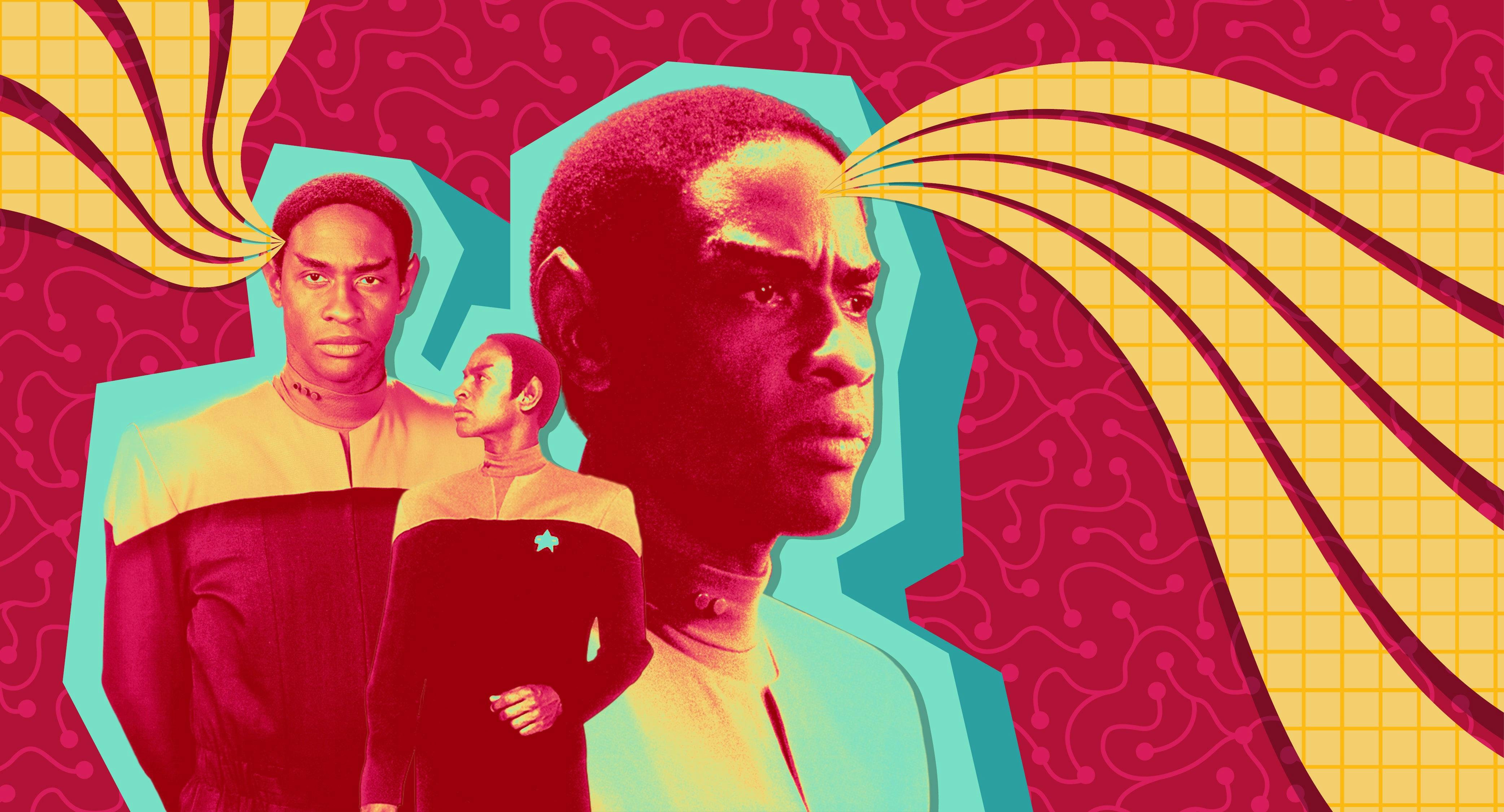
StarTrek.com
Arguably, the smartest Star Trek fans re-watch their favorite Star Trek films or episodes not for only the nail-biting-warp-speed-at-the-last-second escapes, but for the chitchat, too. Gripping philosophical debates about the nature of existence or the moral responsibilities of star-faring people are, of course, Star Trek's bread and butter when it comes to dialogue. But some of the most enduring conversations in the final frontier happen when people are just working out their personal problems.
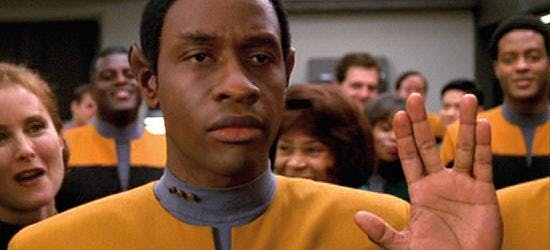
StarTrek.com
In “The Cage,” Captain Pike confided in Dr. Boyce. On Star Trek: Next Generation, everyone went to Counselor Troi for advice. But who was the ship’s counselor on Star Trek: Voyager? If you look closely, you’ll find a surprising answer — Mr. Vulcan himself. Lt. Commander Tuvok was the stoic shoulder-to-cry on for the Voyager crew who were forever searching for Earth, but also, for their own peace of mind.
With the exception of Michael Burnham in Discovery, Tuvok is the only major Star Trek protagonist to straight-up betray other main characters in his first episode — the Voyager pilot, “Caretaker.” Though, we start the show thinking Tuvok is a member of the Maquis resistance, it turns out he’s a spy for Captain Janeway, which means that nearly half the regular characters — specifically Chakotay and B'Elanna — hate his guts at first. While this is an auspicious way for Tuvok to start on the path that results in him being a solid go-to-guy for advice and objective comfort, his duplicity is what makes him so smart and, paradoxically, trustworthy.
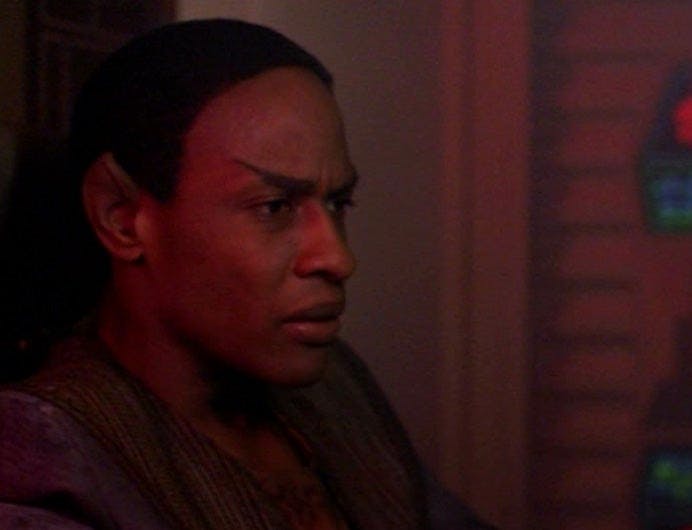
"Caretaker"
StarTrek.com
In “State of Flux,” Chakotay goes to Tuvok for advice specifically because he needed insight from “someone else who pulled the wool over my eyes.” After failing to realize Seska was really a Cardassian spy, Chakotay worries that he’s gullible and his judgment of people sucks. Tuvok responds, “I've always considered your attention span to be adequate.” Eventually, because Tuvok reveals that Seska was able to fool him, too, Chakotay feels better. Endearingly, Tuvok isn’t really aware he’s been giving Chakotay a counseling session until after it’s over. This ambivalence is the charm of Tuvok’s brand of advice-giving; he’s humble about it because, as a Vulcan, he literally has no ego to prove himself right.
In the novel, The Seven-Per-Cent Solution, Nicholas Meyer (director, The Wrath of Khan, The Undiscovered Country) made a connection between the reasoning mind of Sherlock Holmes and psychotherapy. He posited that detectives and therapists have more in common than they don’t. As a thematic descendant of Spock, Tuvok has obvious connections to Holmes. But because Tuvok is literally a detective in his role as a security officer, his objectivity makes him the perfect person to act as a mediator.
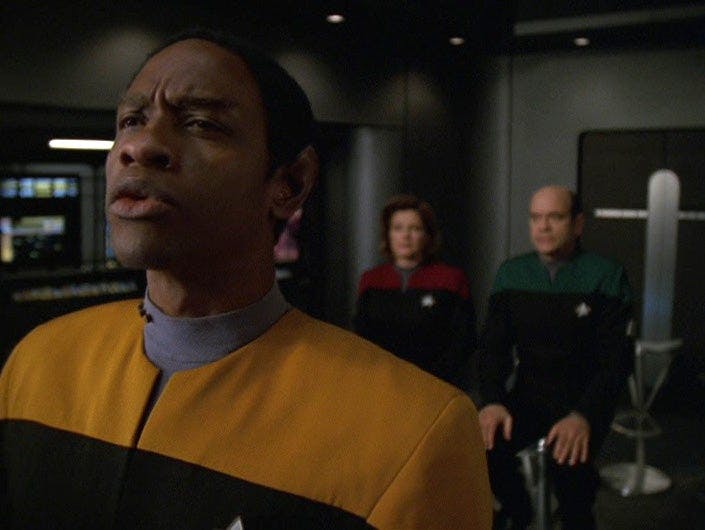
"Author, Author"
StarTrek.com
In both “Death Wish” and “Author, Author,” Tuvok represents people who wouldn’t really have anyone else to turn to — a member of the Q who wants to die by suicide in the former episode, and the holographic Doctor who wants to retain the rights to publish his memoirs in the latter. In both of these situations, because Tuvok solely cares about the truth, he ends up being the only hope for lost causes.
It also helps that Tuvok is constantly offering up brilliant gems of wisdom; the sort of casual lines that aren’t as famous as other Star Trek soundbites, but probably should be. In “Cold Fire,” after Kes is given good reason to fear her more negative tendencies, Tuvok reassures her saying, “Without the darkness, how would we recognize the light? Do not fear your negative thoughts. They are part of you.”
One of the best recurring themes in Star Trek is the notion that accepting your flaws and personal ignorance is one of the hardest steps to take in self-improvement. For Spock, this meant telling Valeris in The Undiscovered Country that “Logic is the beginning of wisdom... not the end.” But Tuvok is a guy who grew up with the words of Spock ringing in his ears and so he is, in some ways, 10 times wiser than any Vulcan in all of Star Trek.
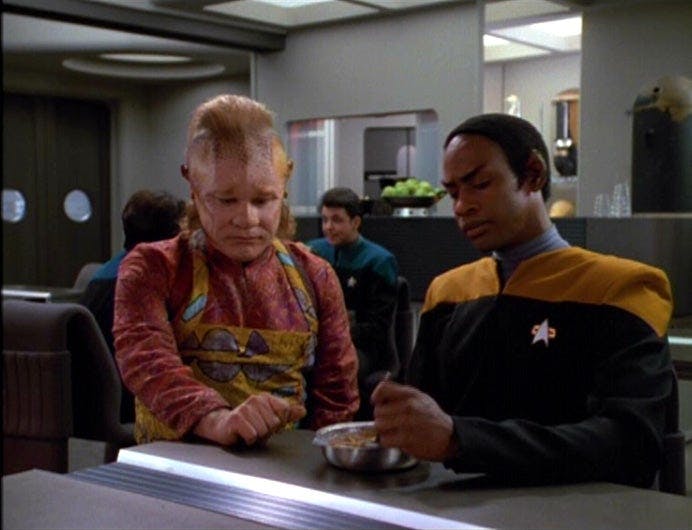
"Elogium"
StarTrek.com
Sure, just like Spock, Tuvok talks about logic a lot, but he also knows that contractions are part of dealing with life’s biggest problems. In “Alliances,” Janeway considers teaming up with her greatest enemy — the Kazon — and it’s Tuvok who urges her to do it, even though it’s risky as hell. In “Elogium,” Tuvok tells Neelix to embrace the illogical emotional contradictions of parenthood, saying, “I must point out that, as illogical as it seems, being a father can have infinite rewards. Far more than would seem possible.”
In other words, Tuvok gets what so many people struggle with — that the unknown is scary, but you’ve got to embrace it and figure it out — even when it doesn’t seem reasonable. When he’s stranded with a group of children in the episode “Innocence,” Tuvok utters what is perhaps his greatest sentence ever, “We often fear what we do not understand. Our best defense is knowledge.”
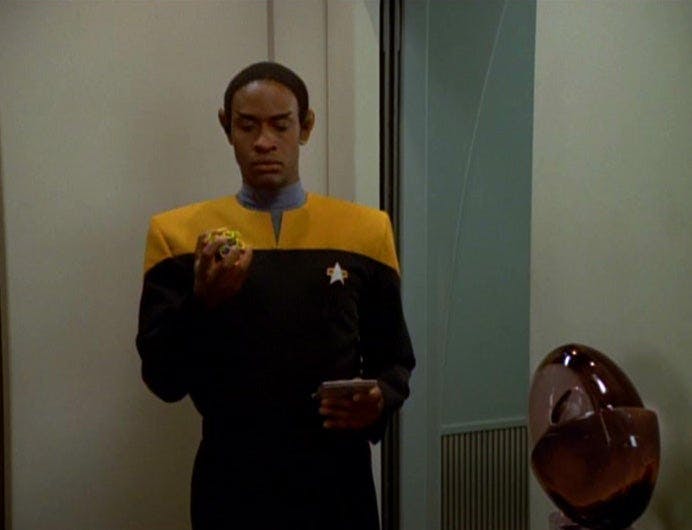
"Future's End, Part I"
StarTrek.com
Tuvok may not be the most obvious Star Trek choice for a life coach, but he is certainly a top choice for a personal counselor or adviser. If you still have doubts about Tuvok’s ability to help those around him become more well-rounded, tolerant, and wise, one final moment may convince you. At the beginning of “Future’s End, Part 1,” Captain Janeway reveals she’s decided to pick up tennis again. Guess who helps her out with her swing?
“Perhaps if you maintained eye contact with the ball at the apex of its trajectory, your serve would be more effective,” Tuvok quips.
Keep your eye on the ball and play it cool. Thanks, Tuvok, those are words to live by.





